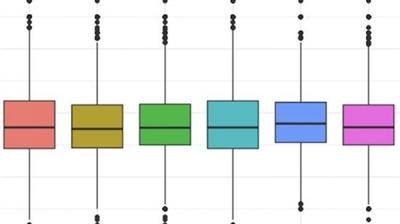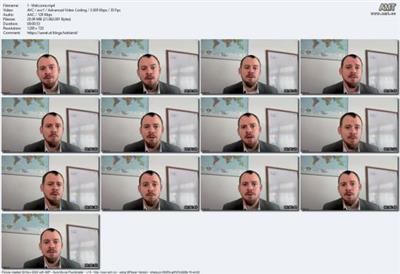- Thread Starter
- #1
Intro to Text Analysis with R

What you'll learn
Learn the benefits of using text analysis with R
Learn how to load and process text as data
Learn how to generate word clouds, bigrams, and more
Conduct and visualize the results of sentiment analysis
Requirements
Basic R skills recommended, no knowledge of text analysis needed
Description
This course provides a practical introduction to text analysis using R, ideal for beginners and data enthusiasts looking to uncover insights from text data. Text analysis has become essential across fields such as social science, marketing, and academia, where unstructured data-like reviews, social media posts, and survey responses-holds valuable information. This course aims to demystify text analysis techniques and equip participants with practical R skills to get started.We begin by exploring the basics of text pre-processing, a crucial step that prepares raw text data for analysis. Participants will learn how to transform text by tokenizing it into individual words, removing common "stop words," converting text to lowercase, and handling other formatting steps to ensure consistency in the data.From there, the course moves to word frequency analysis, where participants will calculate and visualize the most frequently used words in a dataset. Using R's ggplot2 package, we'll create simple yet insightful visualizations, such as bar charts and word clouds, to reveal the key terms and concepts in a body of text.Additionally, the course covers bigram analysis to identify frequently co-occurring word pairs (e.g., "data science"). This technique provides a deeper view of common themes and associations within the text, allowing students to see how words relate and form patterns.Finally, we'll conduct a basic sentiment analysis, using sentiment lexicons to classify words and text snippets as positive, negative, or neutral. By quantifying sentiment, participants gain a high-level view of the emotions or attitudes within text data.By the end of the course, students will have a solid understanding of core text analysis techniques and be ready to apply these skills to real-world textual data. As always, thank you for your interest in the course and please do not hesitate to reach out if you have any questions!
Who this course is for
Beginner R users seeking to add text analysis to their toolkit
Homepage:

Say "Thank You"
rapidgator.net:
ddownload.com:

Published 11/2024
MP4 | Video: h264, 1280x720 | Audio: AAC, 44.1 KHz, 2 Ch
Language: English | Duration: 34m | Size: 316 MB
A short and accessible course for text analysis
MP4 | Video: h264, 1280x720 | Audio: AAC, 44.1 KHz, 2 Ch
Language: English | Duration: 34m | Size: 316 MB
A short and accessible course for text analysis
What you'll learn
Learn the benefits of using text analysis with R
Learn how to load and process text as data
Learn how to generate word clouds, bigrams, and more
Conduct and visualize the results of sentiment analysis
Requirements
Basic R skills recommended, no knowledge of text analysis needed
Description
This course provides a practical introduction to text analysis using R, ideal for beginners and data enthusiasts looking to uncover insights from text data. Text analysis has become essential across fields such as social science, marketing, and academia, where unstructured data-like reviews, social media posts, and survey responses-holds valuable information. This course aims to demystify text analysis techniques and equip participants with practical R skills to get started.We begin by exploring the basics of text pre-processing, a crucial step that prepares raw text data for analysis. Participants will learn how to transform text by tokenizing it into individual words, removing common "stop words," converting text to lowercase, and handling other formatting steps to ensure consistency in the data.From there, the course moves to word frequency analysis, where participants will calculate and visualize the most frequently used words in a dataset. Using R's ggplot2 package, we'll create simple yet insightful visualizations, such as bar charts and word clouds, to reveal the key terms and concepts in a body of text.Additionally, the course covers bigram analysis to identify frequently co-occurring word pairs (e.g., "data science"). This technique provides a deeper view of common themes and associations within the text, allowing students to see how words relate and form patterns.Finally, we'll conduct a basic sentiment analysis, using sentiment lexicons to classify words and text snippets as positive, negative, or neutral. By quantifying sentiment, participants gain a high-level view of the emotions or attitudes within text data.By the end of the course, students will have a solid understanding of core text analysis techniques and be ready to apply these skills to real-world textual data. As always, thank you for your interest in the course and please do not hesitate to reach out if you have any questions!
Who this course is for
Beginner R users seeking to add text analysis to their toolkit
Homepage:
Screenshots

Say "Thank You"
rapidgator.net:
You must reply in thread to view hidden text.
ddownload.com:
You must reply in thread to view hidden text.
